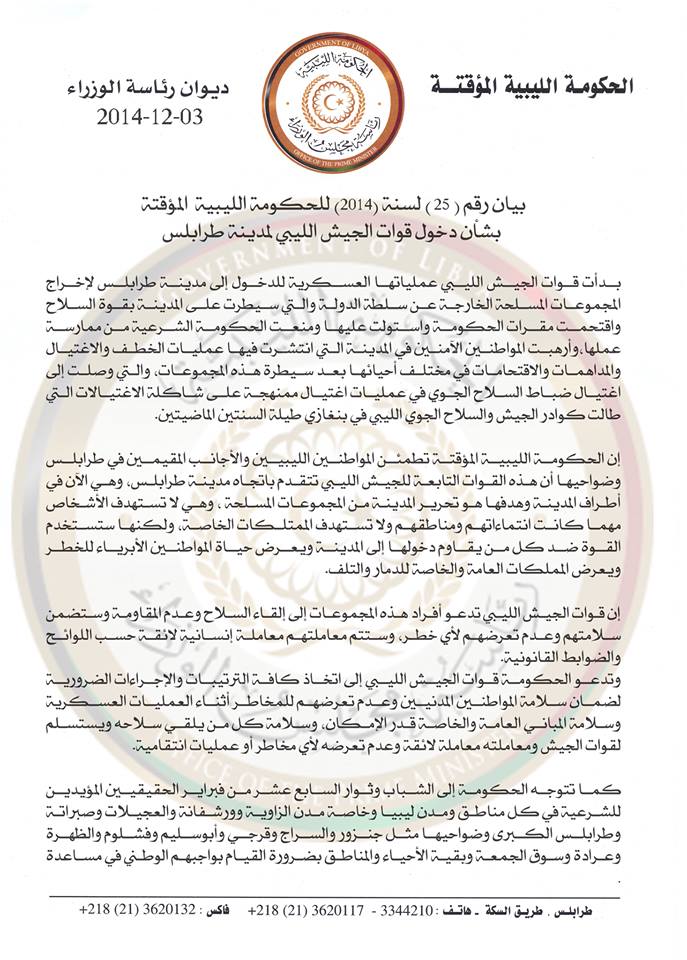By Libya Herald staff.
3 December 2014:
The first stages of developing a new curriculum for primary schools are now underway as part . . .[restrict]of a comprehensive overhaul of Libya’s education system.
During an eight-day intensive programme in Tunisia, 17 representatives from various departments within the Ministry of Education have been joined by international education experts to work on plans for the new primary school curriculum.
The purpose of this programme has been to create a curriculum development plan which would pave the way for developing the new curriculum itself, explained David Webb, team leader for the CfBT Education Trust which is working in partnership with UNICEF to support the process of upgrading Libya’s education system.
“The current curriculum is overloaded and segregated – and often the different subjects do not compliment one another,” he said, words that were echoed by the Libyan attendees.
Najah Bibas, who is responsible for Libyan schools outside the country, said much of the existing curriculum was unsuited to the age-groups it was intended for. She said it was essential that appropriate time was taken to prepare a curriculum that would be better-suited to the age and capabilities of primary school children, as well as one that reflected the 21st century.
“All our educational processes need to be updated and adapted to the modern-day Libyan context,” Director of Basic and Secondary Education at the National Centre for Quality Assurance and Accreditation at Educational institutions, Hamad Saad, told the Libya Herald. “But we need to start with primary education because we can then build on this for the future.”
He said that, after so many years in a closed country, the programme was a very important opportunity for Libyan officials working in the education sector to be exposed to new ideas, methods and modern educational approaches.
“We are supported here with expertise and experience. This is very illuminating and will help us build the basis for future educational strategies,” Saad said. “We are now making the first steps in the right direction towards developing the education system in Libya.”
The framework for the curriculum development plan should be completed by the end of the eight-day programme, laying the foundations for the next stage which will be designing the curriculum itself.
“This is a great opportunity to bring people together from different departments to work on this project,” an education specialist with UNICEF Nasser Kaddoura explained. “With this range of departments involved, this project is inclusive and everybody involved can take some degree of ownership in developing Libya’s new curriculum.”
The training is a partnership between the Department of Education and UNICEF as part of a two-year programme of sector planning for education. [/restrict]







